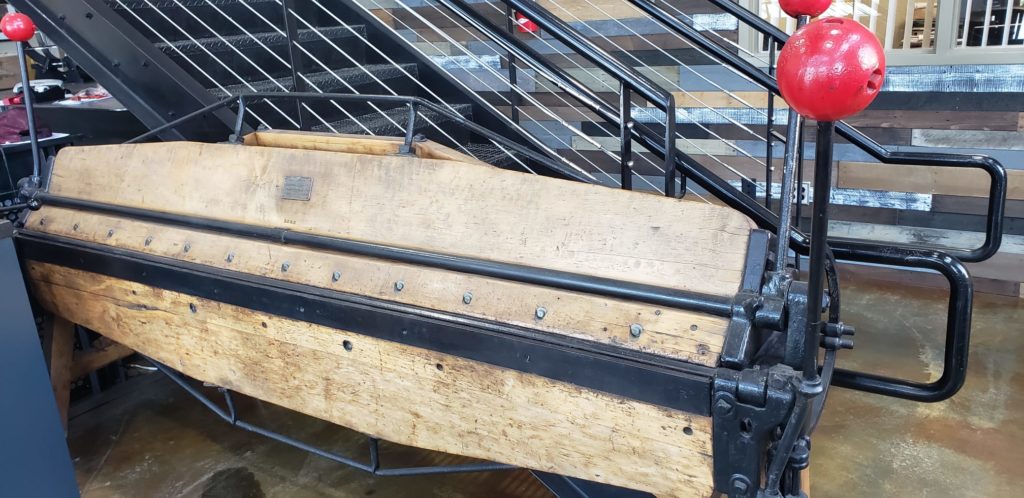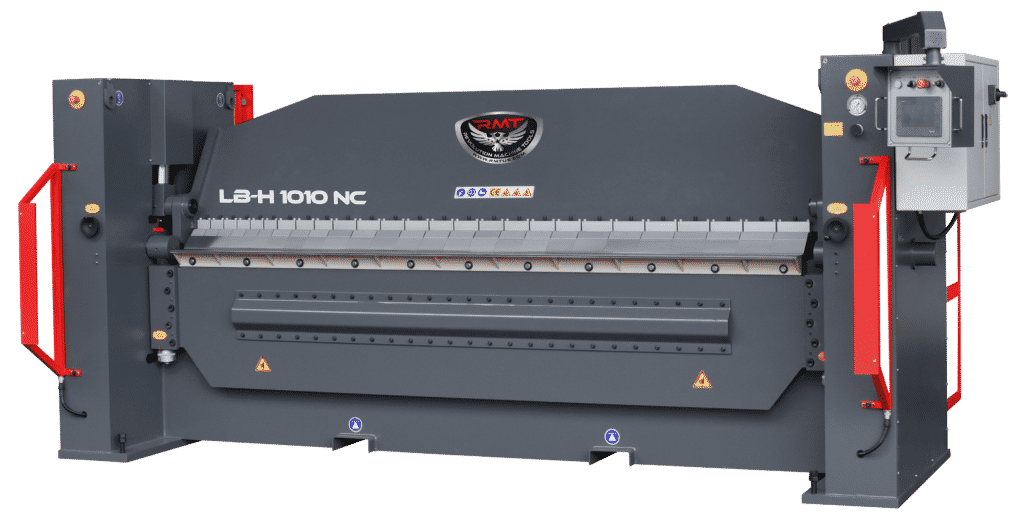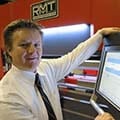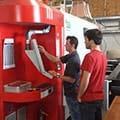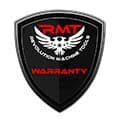Time to Upgrade
You’re a fabricator working on old equipment that you know isn’t very efficient and suspect may actually be a death-trap waiting to be sprung. How do you convince your boss that just maybe it would be a good idea to upgrade to a new, more up-to-date machine?
You could try kicking and screaming on the floor until you get your way, but chances are you might wind up looking for a new job instead of a new machine. As difficult as it might seem, there are ways of helping persuade even the most stubborn supervisor or employer that improvements in the workplace are a good idea.
Know the Benefits
If you want to convince your boss that getting rid of your JunkClunker 78 and replacing it with a CoolTool 3000 is the way to go, you first have to know not only the cons of your current machine, but also all the pros your proposed replacement has to offer. Being vaguely familiar with the advantages of the new equipment isn’t enough, however—you really need to study and comprehend all of its benefits by heart if you want to sound competent to your boss when you discuss it, as well as being able to thoroughly answer any questions you might be asked.
The key is to focus on the return on investment that the new machine brings. Bosses—especially business owners—are always looking at ROI to justify purchases. Seeing a very hefty price tag on a machine will make a buyer cautious about proceeding, but if they can see a potential to make drastically more profit due to the purchase, that aspect will weigh heavily in favor of it being approved.
Some factors to examine and contrast between your current and proposed machine could include the following:
- Automation. New equipment is more likely to be able to be automated, which can reduce labor costs and speed production.
- Competitiveness. Unless you have an extremely loyal clientele, the customers asking you for a quote are shopping around to your competitors as well. New machines generally represent faster processes and superior quality, and savvy consumers will make note of that when they evaluate your facility.
- Consumables. Newer equipment will likely burn through consumables like tooling, blades and coolant at a much slower rate than older machines that may be out of alignment or have outdated processes.
- Energy Efficiency. Modern metalworking equipment is more energy efficient than older models in almost every case. If your boss is into turning the company into a “green” business—or just wants to save some “green” on the electric bills—newer machines are the way to go.
- Maintenance. Newer machines usually require less maintenance and have much less downtime for repairs. In addition, if regular maintenance has been occasionally neglected on the old equipment, buying new machines can present an opportunity for a fresh start.
- Operators. More modern equipment is almost always more user friendly. Machines that are easier to run and maintain not only speed production, but they also produce fewer disgruntled employees, cutting down on bad attitudes, absenteeism and turnover.
- Prestige. Let’s face it—your boss might possibly have a good-sized ego (or at least a whole lot of self-confidence). From an employee gaining a promotion to supervisor to someone starting a company from scratch, bosses generally have a lot of ambition and drive. Along with that comes a desire for a department or business to look good. Having the latest and greatest model of a key piece of equipment on the floor can help enhance a sense of prestige, especially if it features cutting edge technology and lots of “bells and whistles.” Aside from bragging rights among peers in the industry, a company that appears progressive and successful due to owning newer machines can attract not only new customers, but also more qualified and dedicated employees.
- Safety. Better equipment means better safety measures. Plus, older machines can develop hazards through ordinary wear and tear.
- Speed. Newer machines are usually more efficient, providing better speed and output than older models. Increasing production—and profitability along with it—is a big argument in favor of updating machines on the shop floor.
Learn and Practice Techniques of Persuasion
The ancient Greek philosopher Aristotle identified three modes of persuasion in his classic work Rhetoric. They are:
- Ethos, which refers to the ethics, character or credibility of the presenter.
- Pathos, which refers to the presenter appealing to the audience’s sympathies or emotions.
- Logos, which refers to the logic or soundness of the presenter’s arguments.
In order to convince your boss that you need a new machine, you would likely want to begin with these three persuasive techniques. First, you would need to appear credible in all aspects of your job, not just in your knowledge of the new machine. Employers will tend to take a worker more seriously when they can see that the employee is dedicated and professional.
Then, without appearing to be manipulative, you would want to insert subtle emotional appeals whenever you discuss a potential new machine with your superiors: the “coolness” of the equipment, the competitive edge it would give the shop, the increased loyalty of the employees that use it, etc.
Finally, in every discussion of the proposed upgrade you would include one or more facts, statistics, case studies or other logical reasons why purchasing the new machine would improve production, increase quality, avoid risks or otherwise significantly benefit your company.
Other persuasive techniques that could be employed include:
- Authority. Cite credible, qualified experts in the field who can help prove your points for getting the new equipment.
- Bargaining. While you have to be cautious that it doesn’t backfire, you might try suggesting a much bigger, better or costlier machine than what you actually want. If the boss says that it’s a good idea, but outside of the company’s budget, then you’ve got your “foot in the door” of eventually winning the argument as you “compromise” by suggesting less robust investments, working your way down to your ideal machine.
- Coworker Support. If you can get other shop workers—or even office staff—onboard with your idea, and willing to share their thoughts on it, you’ll have a much better chance of persuading your boss. The more respected your coworkers are by the boss, the more influence they will be able to bring on behalf of your argument.
- Goal Alignment. What are the problems that your boss faces? Can the equipment help mitigate any of those problems? If you can frame the purchase as fitting in with the goals of your boss or company, you are much more likely to get approval.
- Morale. Demonstrate how the new machine will improve employee morale, in turn making life easier on the boss.
- Social Validation. “Everybody’s doing it,” may not have worked on your parents, but if you can show how successful peers in the industry are using the equipment in question, your boss may be more likely to want to buy the same machine for your company. Fear of missing out is a scientifically proven psychological principle that can work to your advantage.
- Specificity. You will appear more truthful if you can give precise details in your pitch to the boss. The boss will be less likely to feel you are exaggerating or making things up if you can avoid guessing or being vague.
- Urgency. Another principle mentioned by Aristotle was called “Kairos,” meaning timeliness, or finding the right moment for something. Having a two-week window in which to get 20% off of a new piece of equipment triggers both logic and emotion in a potential purchaser. Being able to instill a sense of urgency or scarcity in your boss could result in a new machine in the shop much sooner that you might have expected.
A More Credible Employee
As you prepare to make your arguments for the new equipment—or any improvements at your work—focus on what you want to achieve and why you want it. With those facts clearly in mind, look at ways your proposal can help your company generally and your boss specifically. That becomes the basis for every argument you make moving forward as you work to make your case.
Regardless of whether you are able to convince your boss you need a new machine at this time, by learning and following these techniques, you will be able to make persuasive arguments for other changes in the future at your company—or elsewhere in your life. You will be perceived as a more credible employee who is dedicated to the company. As such, you will find yourself more successful in most aspects of your employment and advancement moving forward.
